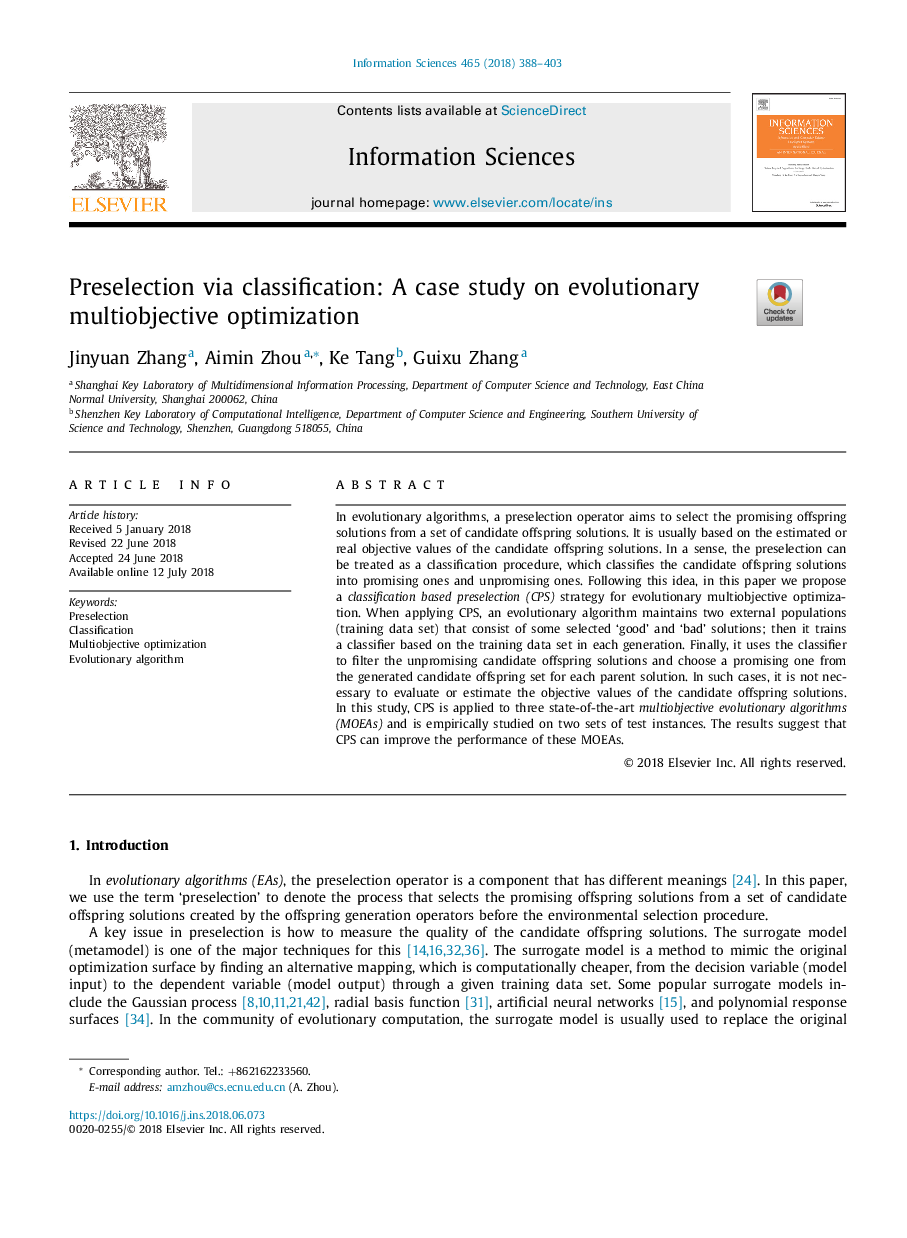| Article ID | Journal | Published Year | Pages | File Type |
|---|---|---|---|---|
| 6856199 | Information Sciences | 2018 | 16 Pages |
Abstract
In evolutionary algorithms, a preselection operator aims to select the promising offspring solutions from a set of candidate offspring solutions. It is usually based on the estimated or real objective values of the candidate offspring solutions. In a sense, the preselection can be treated as a classification procedure, which classifies the candidate offspring solutions into promising ones and unpromising ones. Following this idea, in this paper we propose a classification based preselection (CPS) strategy for evolutionary multiobjective optimization. When applying CPS, an evolutionary algorithm maintains two external populations (training data set) that consist of some selected 'good' and 'bad' solutions; then it trains a classifier based on the training data set in each generation. Finally, it uses the classifier to filter the unpromising candidate offspring solutions and choose a promising one from the generated candidate offspring set for each parent solution. In such cases, it is not necessary to evaluate or estimate the objective values of the candidate offspring solutions. In this study, CPS is applied to three state-of-the-art multiobjective evolutionary algorithms (MOEAs) and is empirically studied on two sets of test instances. The results suggest that CPS can improve the performance of these MOEAs.
Related Topics
Physical Sciences and Engineering
Computer Science
Artificial Intelligence
Authors
Jinyuan Zhang, Aimin Zhou, Ke Tang, Guixu Zhang,
